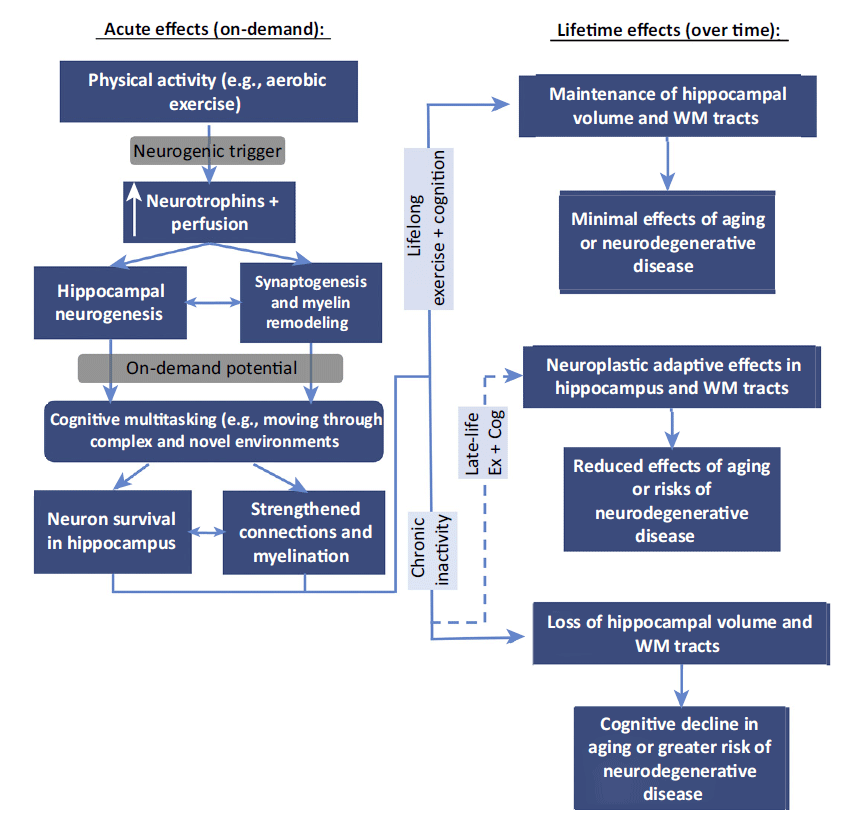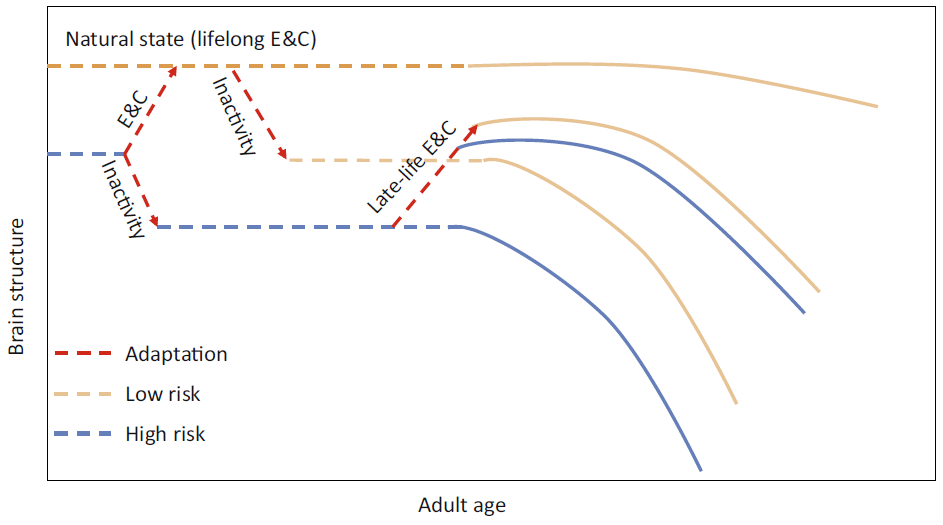Why aerobic training affects the brain so much: the reason for evolution

Over the past decades, numerous studies have shown the positive effect of aerobic training on mental abilities throughout life ( 1 , 2 , 3 , 4 ). Especially important effects are noted for the aging brain. The benefits of them are indisputable - both for healthy people and for those suffering from neurodegenerative diseases like Alzheimer's disease. But despite the growing interest in running for therapeutic purposes, science still does not quite understand the mechanisms by which human cognitive abilities are so greatly improved. In addition, studies show a large difference in the results in different experiments.
One of the reasons for the lack of a clear understanding of the mechanisms of aerobic exercise on cognitive abilities is the lack of a theoretical model of such an impact, according to American researchers from the University of Arizona. Therefore, they set the task to create such a model and understand the reasons for the individual differences in the influence of aerobic exercises. This is important for creating more effective individual training programs.
To create a new model, scientists have applied an evolutionary neurological approach. They explain how physical activity affects the brain in terms of human evolution. Scientists assume that training is directly related to cognitive abilities, because as a result of evolution, a person approximately 2 million years ago adapted himself to a collecting model in which motor control, memory, spatial navigation and decision making are combined with a high level of aerobic exercise. In simple words, our ancestors were all athletes with advanced endurance. They constantly moved, ran and walked, winding many tens of kilometers per day.
')
“We think that our physiology responded to this increase in physical activity, and these physiological adaptations affected everything from your bones and muscles, apparently to the brain itself,” says David Raichlen, associate professor at the School of Anthropology at the College of Social and behavioral sciences at the University of Arizona. - It is rather strange to think that the movement of your body should influence the brain in such a way - that exercise has some positive effect on the structure of the brain and its functioning - but if you think about it from an evolutionary point of view, you will start putting the puzzle pieces together and understand why the system adaptively responds to the challenges and stresses associated with exercise. ”
Using the concepts of evolutionary medicine, researchers propose a new Adaptive Capacity Model (ACM) that explains why exercise protects the brain throughout life. The key elements of this concept are indicated in the illustration above and are explained in detail in the diagram below.
According to scientists, in the case of a low-active lifestyle, familiar to modern society, the brain adapts and reduces cognitive abilities, obeying the most energy-efficient strategy. With age, this leads to brain atrophy.

The authors of the scientific work outlined a range of specific areas of mental activity that are associated with active physical search for food and decision making. They believe that this model can be considered the foundation for modern, more advanced research that can help preserve the mental abilities of a person throughout his life.

In addition, this model helps explain why previous studies of the effects of aerobic exercises on cognitive abilities showed such different results. The reason is the difference in cognitive tasks that were set for the subjects, as well as the intensity and timing of physical exercises - these factors are crucial and affect the results of the tests.
“The search for food is an incredibly complex cognitive behavior,” says Reichlen. - You move around the landscape, you use memory not only to make decisions about where to go, but also to find your way back, you pay attention to the surroundings. This is a multitasking process throughout the journey, because you need to make decisions and at the same time monitor the surrounding reality, and at the same time monitor your locomotor activity over rough terrain. If you put it all together, you get complex multitasking efforts. ”
The evolutionary history of man shows that we are all athletes. And if you do not maintain activity at the proper level, the body will adapt to the new low-energy regime. In particular, the brain will also adat, reducing its functional readiness, scientists say. They recommend intensive aerobic exercise, constantly moving along new routes. The new environment provides additional warm-up for the brain.
The scientific work was published in the July issue of the journal Trends in Neurosciences (doi: 10.1016 / j.tins.2017.05.001, pdf ).
Source: https://habr.com/ru/post/370589/
All Articles